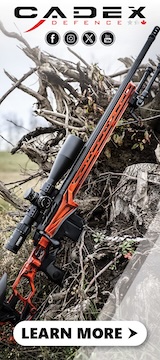- Location
- The Conservative part of Ontario
N.W.T. bison herd to be killed
Last Updated Sat, 17 Dec 2005 18:10:38 EST
CBC News
There are plans to kill the Hook Lake wood bison herd in Fort Resolution, N.W.T., next year because some of the animals have tested positive for bovine tuberculosis.
The imminent death of the 122 animals is the end of a project to try to maintain a disease-free herd of captive wood bison in the Northwest Territories.
(file photo)
Last summer, several animals tested positive for bovine TB, and the Canadian Food Inspection Agency now considers the entire herd to be contaminated.
Michael Miltenberger, the territories' minister of environment and natural resources, said the federal government promised nine years ago to help pay to save the herd, but Ottawa never made a contribution. The territories spent $3 million on the project.
"So given all those factors, the thought was the federal government would be involved front and centre in making that strategy a reality, but unfortunately they've made the decision otherwise, so we're in the position of making some hard decisions of our own," he said.
The Hook Lake Recovery Project started in 1991, when it was decided to try to establish a herd that was not contaminated with bovine TB, as many are.
The territories isolated a healthy group of bison in 1996, but somehow the infection got into the herd.
"The biologists are all saddened to see this thing being brought to an end," Miltenberger said. "There was a tremendous opportunity to learn things about the genetics of bison, disease control, a whole host of other related issues."
The animals will be killed in February or March.
After that, the bison yards and pens, which are in the town of Fort Resolution, will be cleaned up.
Fort Resolution, population 562, is on the south shore of Great Slave Lake, north of Alberta and about 390 kilometres from Yellowknife.
Last Updated Sat, 17 Dec 2005 18:10:38 EST
CBC News
There are plans to kill the Hook Lake wood bison herd in Fort Resolution, N.W.T., next year because some of the animals have tested positive for bovine tuberculosis.
The imminent death of the 122 animals is the end of a project to try to maintain a disease-free herd of captive wood bison in the Northwest Territories.
(file photo)
Last summer, several animals tested positive for bovine TB, and the Canadian Food Inspection Agency now considers the entire herd to be contaminated.
Michael Miltenberger, the territories' minister of environment and natural resources, said the federal government promised nine years ago to help pay to save the herd, but Ottawa never made a contribution. The territories spent $3 million on the project.
"So given all those factors, the thought was the federal government would be involved front and centre in making that strategy a reality, but unfortunately they've made the decision otherwise, so we're in the position of making some hard decisions of our own," he said.
The Hook Lake Recovery Project started in 1991, when it was decided to try to establish a herd that was not contaminated with bovine TB, as many are.
The territories isolated a healthy group of bison in 1996, but somehow the infection got into the herd.
"The biologists are all saddened to see this thing being brought to an end," Miltenberger said. "There was a tremendous opportunity to learn things about the genetics of bison, disease control, a whole host of other related issues."
The animals will be killed in February or March.
After that, the bison yards and pens, which are in the town of Fort Resolution, will be cleaned up.
Fort Resolution, population 562, is on the south shore of Great Slave Lake, north of Alberta and about 390 kilometres from Yellowknife.




































































